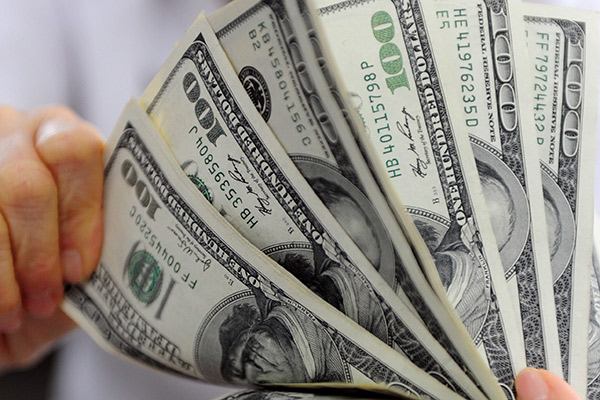Dollar printing comes with responsibilities: China Daily editorial


With the euro, the renminbi and the yen's exchange rates against the US dollar plummeting, large amounts of US dollars have been flowing back to the United States over the past week after the Federal Reserve announced a 50-basis-point interest rate hike, and the tightening of the balance sheet next month.
The world is once again paying protection fees for the US' dollar hegemony. This round of tightening of its monetary policy was as radical, if not selfish, as its initial easing practice since the previous Donald Trump administration. So are its global impacts.
Although the US policymakers were repeatedly warned that limitless easing would stoke inflation, they still gambled on it for a quick recovery of the economy.
Likewise, although they are well aware that slamming on the brakes by raising the interest rate and tightening balance sheet sharply at the same time will not ease the inflation in the US, which is caused by multiple factors, they are still pressing the brakes regardless.
This will result in stagnation for the US economy, with both supply and demand constrained, and further challenges for the international financial sector, global supply chains and the world trade system.
The US only thinks about its own short-term interests when it comes to resolving economic issues, which in most cases is determined by the needs of its domestic politics.
After the establishment of the dollar's hegemony, the US has already played the "old trick" of harvesting global wealth too many times. When it implemented the quantitative easing monetary policy, it prompted many emerging markets to borrow a lot of US debt, and the US economy prospered, while cultivating asset bubbles to varying degrees. Now the Fed is raising interest rates, capital is flowing out of the emerging markets, triggering exchange rate volatility, and even currency and financial crises.
It is the things that the Joe Biden administration chooses not to do, such as easing its constantly heightened sanctions on Russia, reducing its arms support to Ukraine, which is prolonging that county's conflict with Russia, dropping its long-term sanctions on other oil producing states, and ending the unfair tariffs imposed on Chinese goods and irrational restraints upon its high-tech products and talents, which would effectively help ease the US inflation pressure as those would address some of the root causes.


































